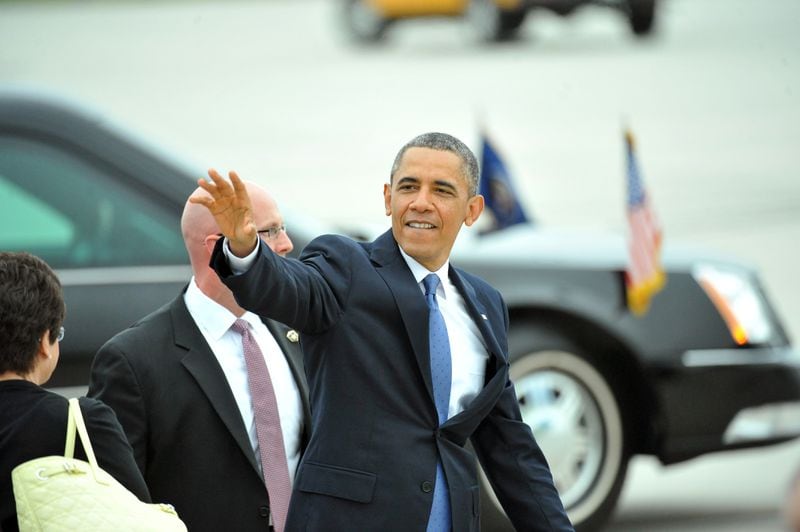Monica Henson is superintendent of Provost Academy Georgia , a Georgia virtual public high school serving grades 9-12. She began her career as an English teacher in the Gwinnett and went on to work as a teacher and administrator in North Carolina, Florida, Massachusetts, Connecticut, and California, holding a series of progressively responsible positions, including department chair, dean of curriculum and instruction, principal, and regional director.
By Monica Henson
Saturday mornings are my time to surf the Internet and catch up on my online reading and guilty pleasures. To mitigate the “guilty” part, I make a point of checking my work email, too. Imagine my surprise and delight when I opened my Outlook email to find an invitation from a government staffer in Washington, D.C., stating “On behalf of the White House, it is my
pleasure to extend an invitation to the President’s remarks at the Georgia Institute of Technology this coming Tuesday.”
I am a committed Democrat (although I don’t vote straight tickets) that voted for President Obama twice and support him loyally. (Full disclosure: I also support Georgia’s Republican governor and lieutenant governor.)
I am equally supportive of his Secretary of Education, Arne Duncan. Receiving this invitation is literally a dream come true for me. However, I respectfully declined and am sending one of my Executive Cabinet officers as my designee instead.
Credit: Maureen Downey
Credit: Maureen Downey
My friends that are fellow political junkies are no doubt scratching their heads reading this and saying “Wait…what?” There is only thing, other than a family emergency, that could prevent me from accepting this invitation and showing up Tuesday morning at McCamish Pavilion with bells and blue ribbons on. It’s the single most important responsibility, after ensuring the safety of students and staff, of any school superintendent.
I made a commitment to visit our campus in Savannah next week and observe our Program Coordinator, who is also our math teacher in that center, using the Teacher Keys Effectiveness System observation tool. I will also be visiting our paraprofessional staff and the literacy teacher. The responsibility to supervise and evaluate instructional staff thoughtfully and effectively is the most important of any burden borne by any instructional administrator. In districts where student performance improves and teacher satisfaction and retention are the highest, the superintendent of schools takes personal responsibility for monitoring the quality, timeliness, and effectiveness of teacher supervision and evaluation.
In many districts, instructional supervision is delegated to the human resources department. That is not the case in Provost Academy Georgia, which is a single-school statewide district authorized by the State Charter Schools Commission. Instructional supervision and evaluation is carried out by all administrators who oversee any part of our instructional program—and that includes me, first and foremost. I evaluate my instructional administrators on their carrying out of TKES and LKES in the manner in which the state has directed us to do. I learned the importance of this concept (executing the teacher evaluation instrument to the letter) while writing my dissertation and studying how administrators implement teacher evaluation.
For that reason, I make it a practice, and I have done so since 2002, when I first became a public school administrator, never to schedule over an instructional observation in a classroom. I am attending the Legal Issues Conference being presented by the Georgia Association of Educational Leaders while I am in Savannah (because I try to get maximum bang for our school’s travel buck). I’d have gladly ditched the conference, valuable as it is, and sent a representative to it in my stead so I could be at Georgia Tech to hear the President speak.
I never, however, ditch a classroom observation.
I designated one of my direct reports to attend the President’s event in my place, and I sent polite regrets and a brief explanation: “Thank you for the kind invitation. I have scheduled instructional observations at our school site in Savannah. One of my hard and fast rules since I became a school administrator is that I do not schedule over teacher observations for any reason, unless the building is on fire or school is snowed out. Teaching is simply too important for anything else to edge it from my schedule. I hope that the President understands my priority, and that he continues to have my steadfast support as a loyal Democrat who has cast my vote for him twice.”







